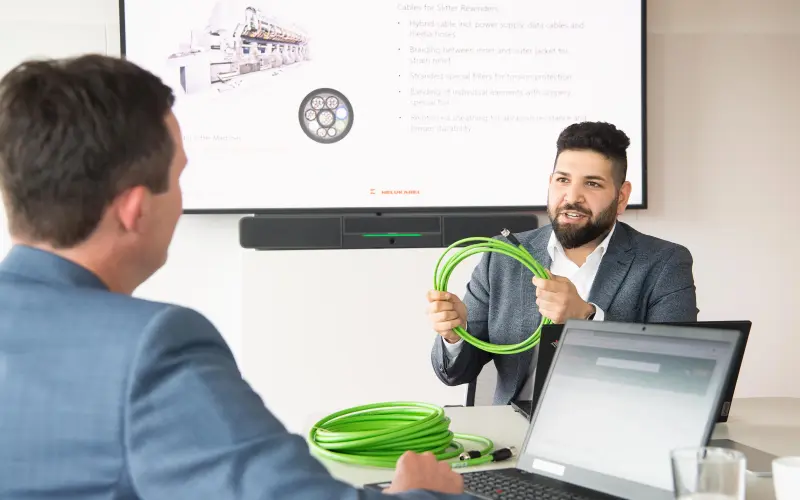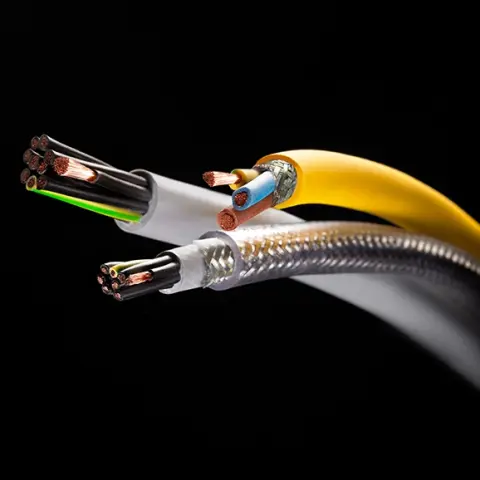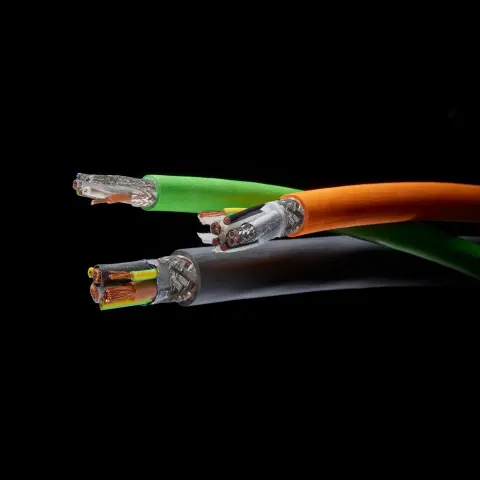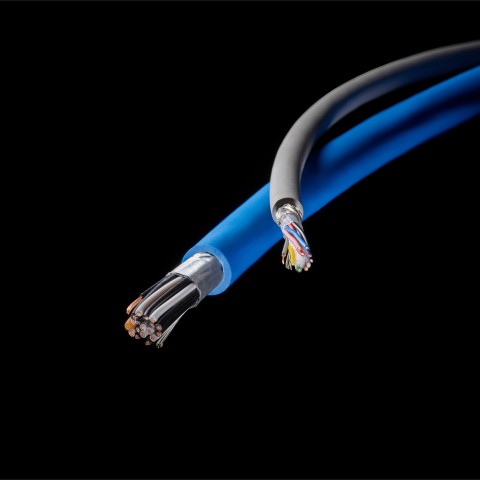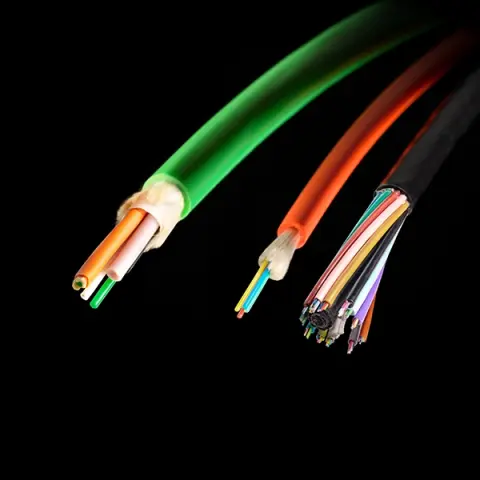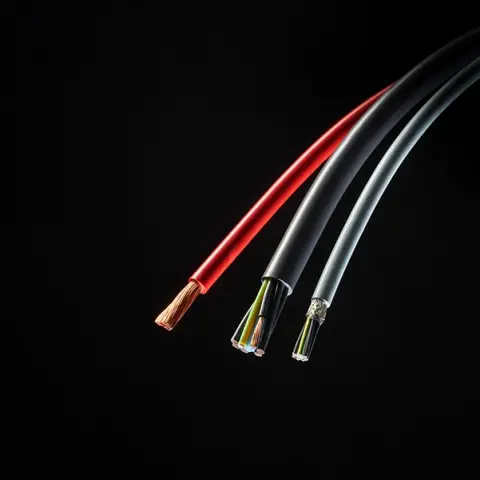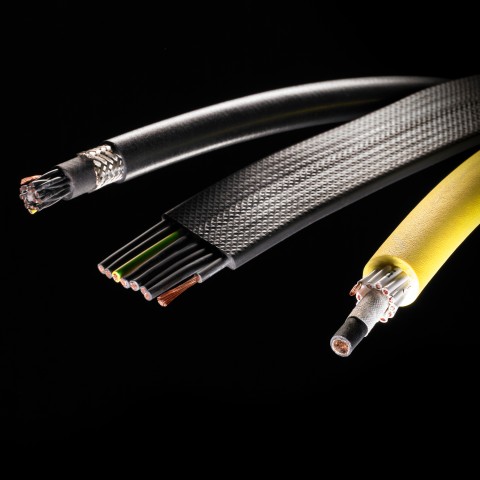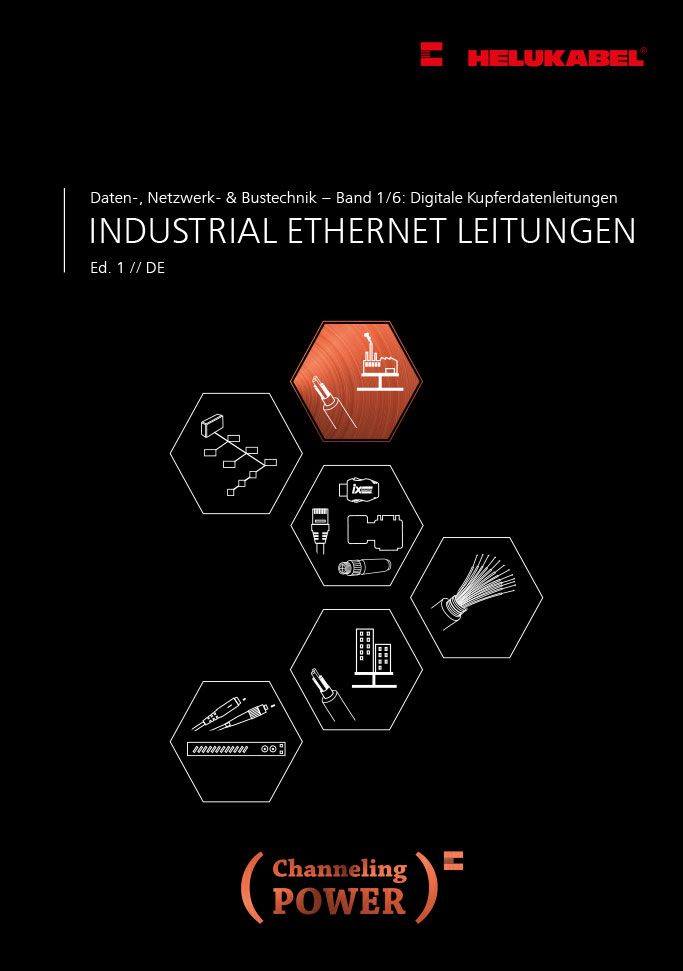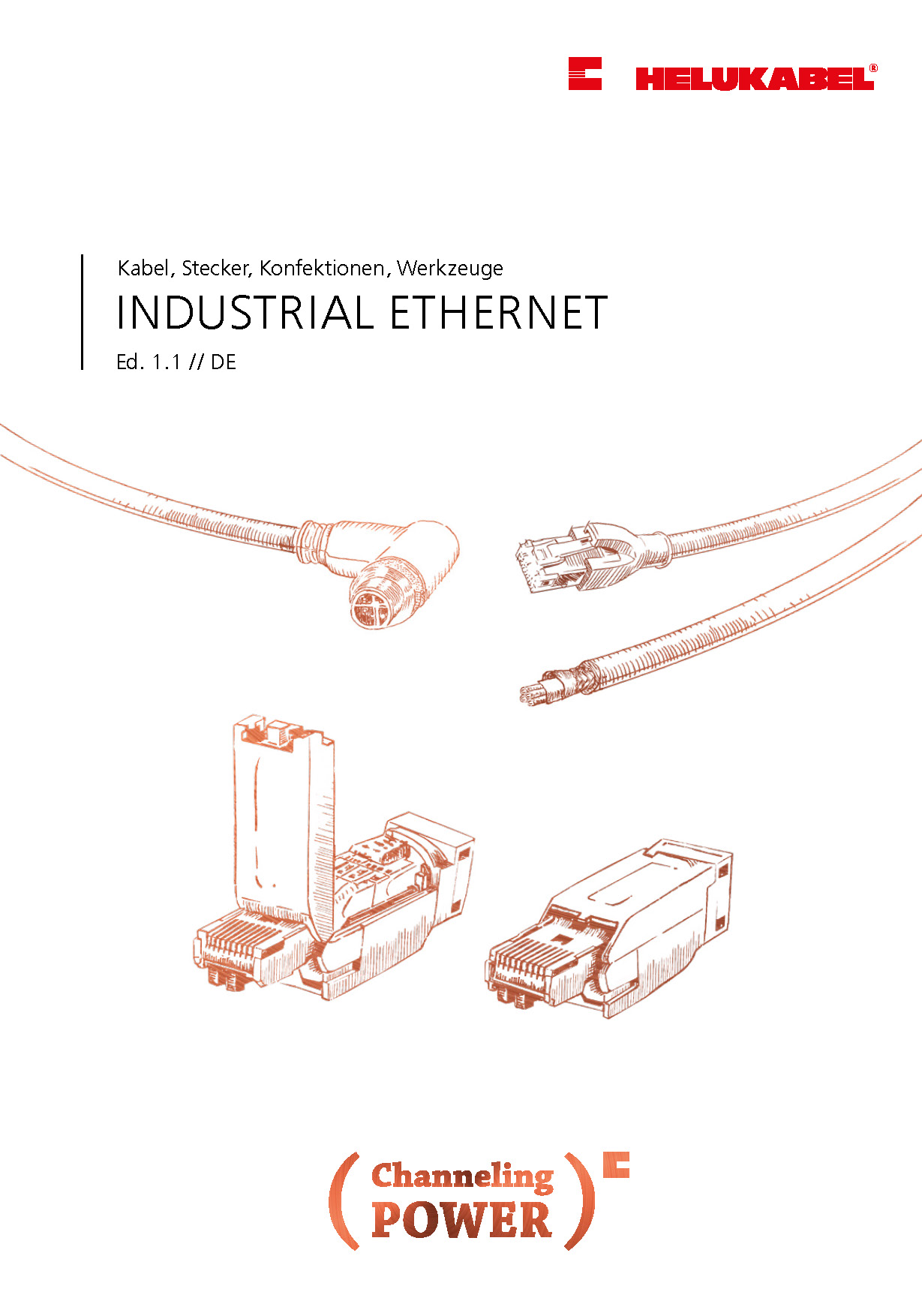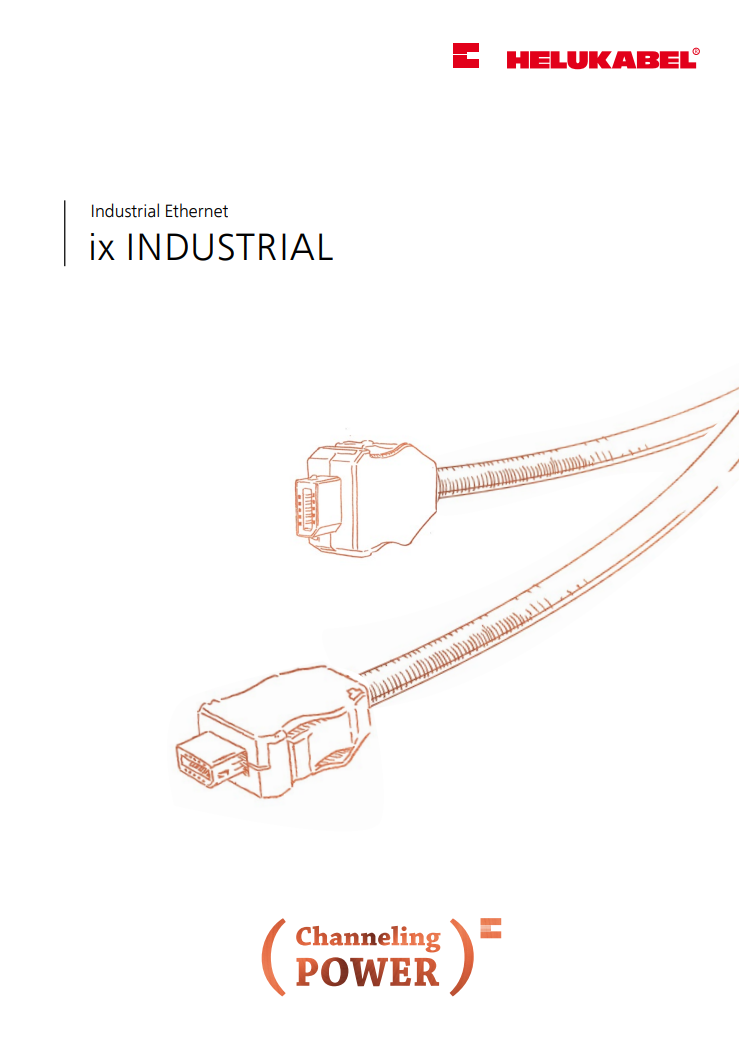Industrial Ethernet: Robust Networks for Industry 4.0
What is industrial Ethernet?
Industrial Ethernet solutions bring proven Ethernet technology to harsh industrial spaces. These networks must be able to withstand significant temperature fluctuations, resist vibrations, and function for years without any errors. What makes Ethernet so special is its ability to transmit control signals in real time, meaning commands are received exactly when they are needed. Ethernet has a substantial advantage over proprietary field bus systems, namely reliable Ethernet standards which combine economical components with the flexibility of modern network technology. In other words: Industrial Ethernet intelligently networks factories. Two of the most well-known standards for industrial Ethernet are PROFINET and EtherCAT.

How are industrial Ethernet cables constructed?
Industrial Ethernet cables are constructed based on the proven twisted-pair principle. This is a type of construction featuring two copper wires that are twisted around each other in a spiral shape, which minimises the effects of electromagnetic disruptions. Combining this twisting with an additional layer of aluminium-foil or braided-copper screening protects against interference from motors, frequency converters, and other electrical devices and machines. The construction of industrial Ethernet cables is notably different to that of office Ethernet cables. Industrial Ethernet cables have a robust outer sheath made of PUR or special PVC that resists oil, heat, and mechanical stress.
Two-pair cables are standard, but for higher transmission speeds, four-pair cables are also available.
In harsh environments, robust M12 and M8 round plugs dominate the plug connector scene, and they can withstand vibrations and be securely fastened—even with gloves on. RJ45 industrial Ethernet connectors are also commonly used.
Discover our range of industrial Ethernet products
Your advantages at a glance
- Extremely robust: Our industrial Ethernet cables resist temperature fluctuations, harsh environments, and chemicals, providing years of reliable operation.
- Thanks to Power over Ethernet (PoE), industrial Ethernet cables can simultaneously transmit data and power—up to 90 watts depending on the cable's construction. This saves space, installation time, and money.
- Hybrid cables transmit electrical power and digital signals over separate cores which are contained within the same cable. This single-cable solution (OCT: One Cable Technology) is also available for EtherCAT and PROFINET, as an example.
- Maximum flexibility: Whether in use in drag chains or in robotics applications, we have the right industrial Ethernet cable for any task and that can withstand millions of bends and twists.
The most important standards for industrial Ethernet are:
- EtherCAT
- EtherNet/IP
- PROFINET
- POWERLINK
- SERCOS III
- CC-Link IE
- Modbus TCP
Cable types: The right cable for every application
- Type A (stationary): For fixed installations in control cabinets
- Type B (moving): For cables subjected to occasional movement
- Type C (highly flexible): For consistent movement in drag chains
- Type R (torsion, robotics): For use in applications with high torsional stress, e.g., robotics

HELUKABEL is a member of the PROFIBUS Nutzerorganisation e.V. (User Organisation)—a leading industry community focused on the standardisation and development of industrial communications technologies. The organisation also promotes the PROFIBUS and PROFINET technologies. As a member of this expert network, we are actively participating in shaping the future of industrial communication. Our membership not only strengthens communication between manufacturers and users, but emphasises our commitment to supplying ever-more interconnected industries with high-performance and future-proof solutions.
Single Pair Ethernet: Special Cables for Industry 4.0
With Single Pair Ethernet (SPE), a single twisted pair simultaneously transmits power and data at gigabit speeds, saving space and money. These cables are frequently used in the automotive industry, and, for harsh industrial environments, there are special types that are also suited for use in drag chains and robots. SPE plays a central role in the Industrial Internet of Things (IIoT), as well as in Industry 4.0.
Frequently Asked Questions (FAQ)
Standard Ethernet cables are designed for workplace environments. Industrial Ethernet cables, on the other hand, have robust outer sheaths made of special plastics that are resistant to oils, chemicals, extreme temperatures, or UV rays. The twisted pair cores of higher-category cables are additionally screened and the outer sheath is mechanically reinforced. RJ45 office Ethernet connectors are replaced by RJ45 industrial Ethernet connectors.
Our cables function at temperatures between -30 and +80°C, and special designs can go even further. We are able to achieve this level of temperature resistance thanks to heat-resistant core insulations and sheath materials.
Our industrial Ethernet cables and plugs support PoE. Depending on the cable’s construction, the conductors can transmit up to 90 watts of electricity while simultaneously transmitting data at gigabit speeds. This means that there is no need for a separate power supply.

